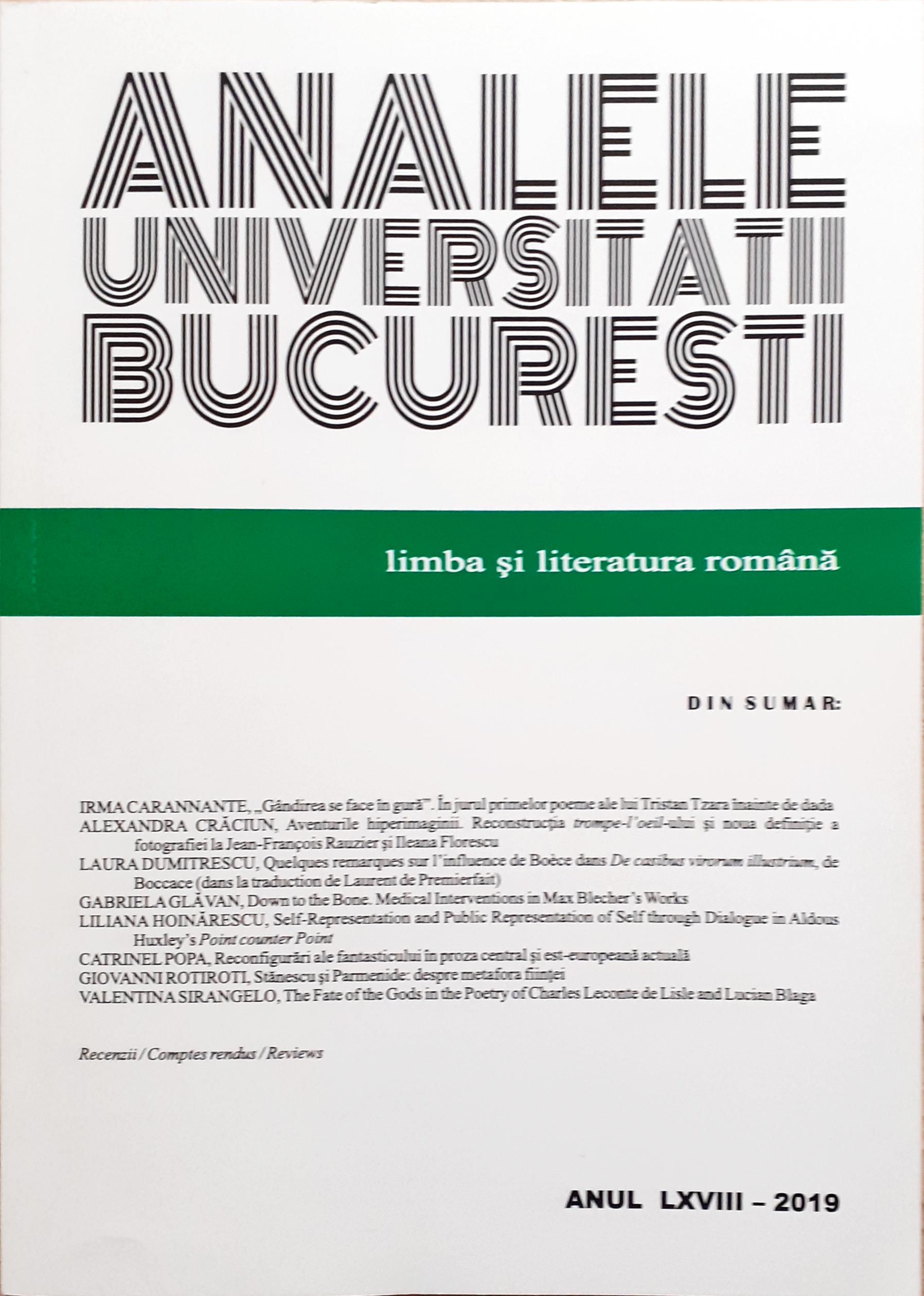Reconfigurări ale fantasticului în proza central şi est-europeană actuală
The Fantastic Revisited in East-Central European Contemporary Fiction
Author(s): Catrinel PopaSubject(s): Novel, Comparative Study of Literature, Czech Literature, Hungarian Literature, Romanian Literature
Published by: Editura Universităţii din Bucureşti
Keywords: communism; fantastic; grotesque; East-European literature:
Summary/Abstract: In the present article we’ll focus on several novels that attempt at rewriting the recent past of ex-communist countries by bringing into foreground the political. police, an institution that embodied in totalitarian regimes the notion of the absolute Evil. What distinguishes such writings as Dumnezeiţele din Moravia [The Goddesses of Žítková] by Katerina Tučková, György Dragoman’s Rugul [The Bone Fire], and Răzvan Rădulescu’s Viaţa şi faptele lui Ilie Cazane [The Life and Deeds of Elijah Cazane] appears to be the manner in which their authors succeed in conveying a complex, polyphonal representation of the communist past by using fantastic or grotesque elements, instruments that prove their efficiency anytime an irrational reality shatters our values and beliefs
Journal: Analele Universităţii Bucureşti. Limba şi literatura română
- Issue Year: LXVIII/2019
- Issue No: 68
- Page Range: 73-85
- Page Count: 13
- Language: Romanian

